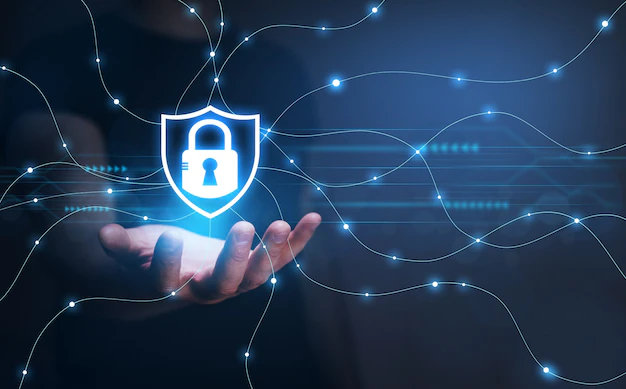Data Privacy: Safeguarding Your Personal Information
14 December 2023
3 Mins Read

toc impalement
Personal information is more vulnerable than ever in an era driven by data and technology. From online shopping to social media, people constantly share personal details on the internet. While it offers convenience, it also exposes them to various threats. Protecting your personal information is not an option; it’s a necessity.
This article will discuss essential tips for safeguarding your personal information online and the often-overlooked aspect of securely disposing of old hard drives using a hard drive shredding machine.
Protecting Personal Information Online
- Strong, Unique Passwords: Using strong and distinctive passwords for each online account is the cornerstone of Internet security. Information like names or birthdays should be avoided. To create and securely store complicated passwords, consider using a password manager.
- Two-Factor Authentication (2FA): Turn on 2FA whenever you can. By requesting a secondary verification in addition to your password, such as a text message or app notification, this adds an additional layer of security.
- Beware of Phishing: Be wary of links or emails that you didn’t request. You may be tricked into divulging sensitive information during phishing attempts. Before you click on any links or forward any information, check the source.
- Update Regularly: Keep your operating system, software, and apps up to date. Developers frequently release security patches to fix vulnerabilities. Ignoring updates can leave your device exposed to potential threats.
- Limit Sharing on Social Media: Be mindful of what you share on social media platforms. Personal information such as your full birthdate, address, and phone number should not be publicly accessible.
- Privacy Settings: Adjust the privacy settings on your online accounts to limit the amount of personal information visible to others. Review these settings regularly, as they may change over time.
- Data Backups: Regularly backup your important data to a secure, offline location. This ensures that you won’t lose your valuable information in case of data breaches or device failure.
Securely Disposing Of Old Hard Drives

While protecting your personal information online is crucial, it’s equally important to consider what happens to your data when you’re ready to part ways with old electronic devices, especially hard drives. Simply deleting files or formatting a drive is not enough to ensure data privacy. Here’s why securely disposing of old hard drives through shredding is essential:
- Data Residue: Even after deleting files or formatting a drive, traces of data can often be recovered using specialized software. Shredding physically destroys the drive, making data recovery impossible.
- Prevent Identity Theft: Old hard drives may contain sensitive personal information, such as financial records, passwords, and personal documents. Shredding prevents this information from falling into the wrong hands and reduces the risk of identity theft.
- Legal Obligations: In some cases, businesses and organizations are legally required to securely dispose of data-bearing devices to protect customer information and maintain compliance with data protection regulations.
- Environmental Responsibility: Properly shredding old hard drives ensures that they are recycled in an environmentally friendly manner, reducing electronic waste and minimizing harm to the planet.
To Securely Dispose Of Old Hard Drives:
- Professional Shredding Services: Consider hiring professional shredding services that specialize in electronic waste disposal. They have the expertise and equipment to securely shred hard drives, ensuring data is irrecoverable.
- Use a Hard Drive Shredding Machine: If you have the equipment and expertise, you can use a hard drive shredder to physically destroy the drive yourself. Make sure to follow safety guidelines when handling electronic components.
- Certification: Request a certificate of destruction from the shredding service provider as proof that your hard drive has been securely disposed of.
The Bottom Line
Safeguarding your personal information in the digital age is paramount. Following the tips mentioned above can significantly enhance your online privacy and security.
Additionally, don’t underestimate the importance of securely disposing of old hard drives through shredding. By taking these precautions, you can protect your personal data and reduce the risk of falling victim to cyber threats and identity theft. Stay safe, stay secure, and stay vigilant in the world of data privacy.
Read Also:


















Comments Are Closed For This Article